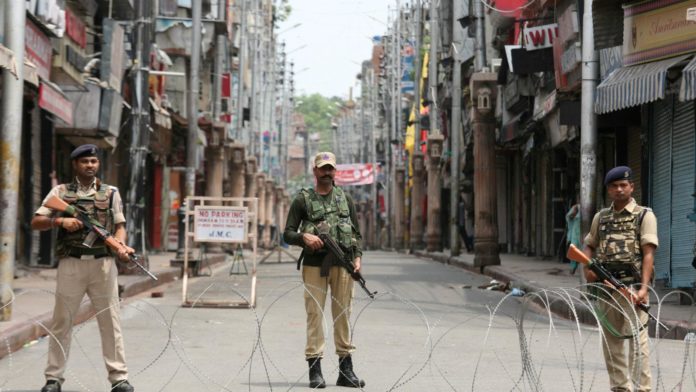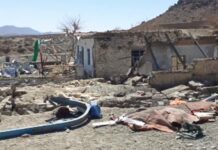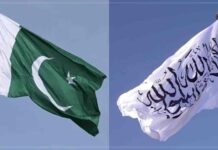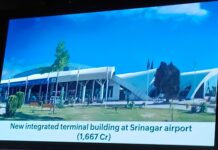Abid Bashir
Srinagar (NVI): The coming Wednesday will mark the first anniversary of the Centre’s historic announcement to abrogate Article 370 that revoked the special status of Jammu and Kashmir and divided the erstwhile state into two Union Territories— Jammu & Kashmir and Ladakh.
Just two days short of the first anniversary of the decision, NVI spoke to a cross-section of society in J&K including top leaders of Bhartiya Janata Party, teachers, students, civil society activities to gauge the feedback on what J&K achieved a year after the rollback of Article 370.
While Prime Minister Narendra Modi had said after the move that the revocation of Article 370 will usher in a new dawn in J&K, there are mixed feelings as the UT residents still demand better infrastructure, jobs and internet connectivity like the rest of the country. The Covid-19 pandemic has also added to the challenges that were there before, though.
However, according to Jammu and Kashmir Police, the Article 370 move has helped restore peace for the security forces. “A peaceful atmosphere is prevailing in J&K. The recruitment of local boys into militancy has gone down. People are happy and the overall security situation has improved a lot,” J&K DGP Dilbagh Singh told NVI.
For BJP leaders in the UT, the rollback of Article 370 has helped fulfill BJP founder Shama Prasad Mukherji’s slogan—Ek Vidhan, Ek Pradhan, Ek Nishan (one constitution, one leader and one flag). “From Kanyakumari to Kashmir, India is one. No special treatment to any state or UT, all are one and the same,” said J&K BJP spokesman Altaf Thakur. He said that the BJP will be celebrating August 5 by holding virtual rallies and in every district of J&K, tricolor will be hoisted and sweets will also be distributed among people.
While the security forces and ruling party leaders suggest that the UT has benefitted from the abrogation of Article 370, there are certain residents who have their apprehensions.
Imtiyaz Nazir, a student who is pursuing PhD in Kashmir University said the rollback of article 370 by the BJP government at the Centre on August 5 last year, was indeed a historic move as all the previous governments that have ruled India from time to time, couldn’t do it.
“But the question remains, what J&K has achieved after integration with the union of India. Militancy is there even though street protests have declined, unemployment is as it was before. The development hasn’t taken place the way it was promised,” he said. “Domiciles have been given to almost 2000 people who were non-J&K residents,” Nazir added.
Sheikh Mustafa Kamaal, the elder son of former Prime Minister and Chief Minister of the erstwhile state of J&K Sheikh Muhammad Abdullah said, “Accession to India was a bridge between India and J&K. When India was under British, J&K was an independent country. Had Pakistani invaders not attacked Kashmir to grab it, we would have been an independent country still. The then Maharaja Hari Singh had to seek Indian forces’ help to defeat the invaders and for that, accession was a pre-condition. We entered into an accession in 1947 on three conditions— defence, foreign affairs and communication.”
Kamaal said that his father Sheikh Muhammad Abdullah took the reins of J&K and that Article 370 was incorporated in the J&K constitution by the then constituent assembly in 1952. “Its rollback is against the very law of India. It’s a forcible reunion and my party’s National Conference has rejected last year’s August 5 announcement,” he said.
Awami National Conference Vice President Muzaffar Shah said that there has been no outcome of the rollback of Article 370.
“Kashmir’s economy has gone from bad to worse. There is huge unemployment,” he said.
Ravi Kumar, a Jammu-based industrialist said that initially, it seemed that the decision may help Jammu revive its ailing economy, but nothing of that sort happened. “Our economy is in shambles. That apart, now non-J&K people are applying for government jobs and even putting in all efforts to buy land to set up their own business units,” he said.
Yaseen Ahmed, a trader from Kashmir said that nothing much has changed in the last one year. “Kashmir’s economy has further shattered. There is no business, no employment, no development. Hotels are empty,” he said.
-CHK/ARK








